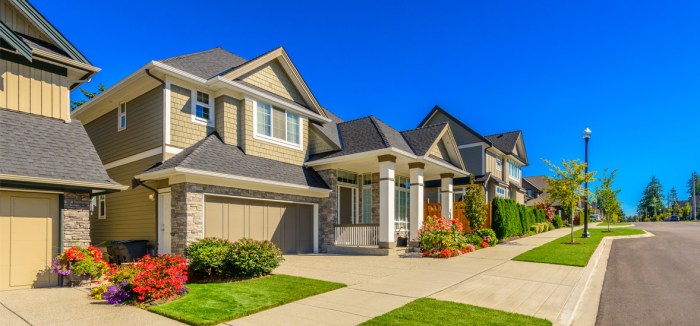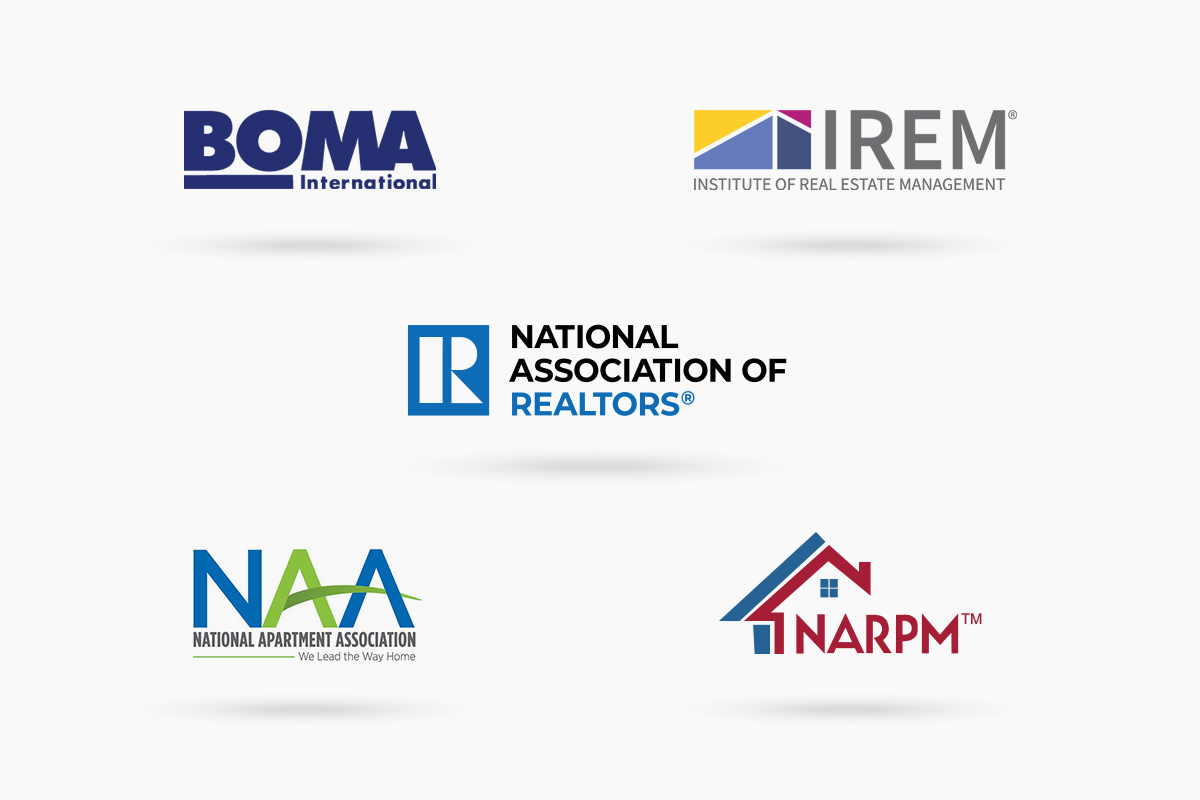Property management for homeowners associations: A Comprehensive Guide
Delving into the intricate world of property management for homeowners associations, this guide aims to shed light on the crucial aspects that govern these communities. From financial management to maintenance responsibilities, this narrative will navigate through the essentials with clarity and insight.
As we embark on this exploration, let's uncover the fundamental principles that underpin the effective management of homeowners associations.
Overview of Property Management for Homeowners Associations

Property management plays a crucial role in maintaining the functionality and value of homeowners associations. Property managers are responsible for overseeing the day-to-day operations, finances, maintenance, and overall well-being of the community.
Key Responsibilities of Property Managers
- Administering association rules and regulations to ensure compliance by residents.
- Handling financial matters, including budgeting, collecting dues, and paying bills.
- Coordination of maintenance and repairs for common areas and amenities.
- Organizing board meetings and assisting with decision-making processes.
- Responding to resident inquiries and resolving conflicts or issues within the community.
Benefits of Hiring a Property Management Company
- Expertise and experience in managing homeowners associations efficiently and effectively.
- Access to a network of reliable vendors and contractors for maintenance and repairs.
- Assistance in enforcing association rules and regulations consistently.
- 24/7 availability for emergencies and quick response to resident concerns.
- Reduced workload and stress for board members by delegating day-to-day tasks to professionals.
Legal Compliance and Regulations
Property managers overseeing homeowners associations must adhere to a variety of legal considerations to ensure smooth operations and compliance with state laws and regulations. It is crucial for property managers to understand the legal framework governing homeowners associations to avoid potential legal issues and liabilities.
Importance of Complying with State Laws
Ensuring compliance with state laws and regulations is essential for homeowners associations to maintain their legitimacy and protect the interests of all homeowners. Property managers play a key role in advising the association board on legal matters, implementing necessary procedures, and ensuring that all actions taken are in accordance with relevant laws.
- Property managers must stay up-to-date with changes in state laws affecting homeowners associations to ensure ongoing compliance.
- Failure to comply with state laws can result in legal disputes, fines, or even dissolution of the association.
- By following legal requirements, property managers help protect the association and its members from potential legal risks.
Ensuring Homeowners Associations Follow Legal Requirements
Property managers implement various strategies to ensure that homeowners associations follow legal requirements and operate within the boundaries of the law.
- Providing regular training to association board members and homeowners on legal obligations and best practices.
- Reviewing governing documents, contracts, and policies to ensure they align with state laws.
- Collaborating with legal professionals to address complex legal issues and ensure compliance.
- Maintaining accurate records and documentation to demonstrate compliance with legal requirements.
Financial Management
In property management for homeowners associations, financial management plays a crucial role in ensuring the smooth operation and maintenance of the community. Property managers are responsible for overseeing the budgets of homeowners associations, collecting dues and fees from homeowners, and handling financial reporting and audits.
Financial Responsibilities of Property Managers
Property managers have the important task of overseeing the budgets of homeowners associations. This involves creating and managing annual budgets, tracking expenses, and ensuring that the association's financial resources are utilized efficiently to cover operational costs, maintenance, and any necessary repairs or improvements.
Collecting Dues and Fees
One of the key responsibilities of property managers is collecting dues and fees from homeowners to fund the association's expenses. This includes sending out invoices, tracking payments, and following up on any delinquent accounts. Property managers must ensure that all homeowners contribute their fair share towards the common expenses of the community.
Financial Reporting and Audits
Property managers are also tasked with preparing financial reports for homeowners associations. These reports provide a detailed overview of the association's financial health, including income, expenses, reserves, and any outstanding debts. Additionally, property managers may coordinate with auditors to conduct regular audits to ensure transparency and compliance with financial regulations
Maintenance and Repairs
Property managers play a crucial role in overseeing the maintenance and repair tasks within homeowners associations. By ensuring that common areas are well-maintained, property managers help preserve the overall property value of the community.
Maintenance Tasks
- Regular inspections of common areas to identify maintenance needs.
- Scheduling and overseeing routine maintenance tasks such as landscaping, cleaning, and pool maintenance.
- Coordinating repairs for common area amenities like playgrounds, clubhouses, and fitness centers.
Coordination of Repairs
- Responding promptly to maintenance requests from homeowners.
- Obtaining quotes from vendors and contractors for repair work.
- Supervising repair projects to ensure quality and timely completion.
Importance of Preventive Maintenance
Preventive maintenance is essential in preserving the property value of homeowners associations. By addressing maintenance issues proactively, property managers can prevent costly repairs and maintain the overall aesthetic appeal of the community. Regular maintenance also helps enhance the quality of life for residents and promotes a sense of pride in the community.
Communication and Conflict Resolution

Effective communication and conflict resolution are essential aspects of property management for homeowners associations. Property managers play a crucial role in keeping residents informed, addressing disputes, and fostering a sense of community within the association.
Communication Strategies
Property managers utilize various communication strategies to keep homeowners informed about association matters. This includes regular newsletters, emails, community meetings, and online portals. By providing timely updates and information, property managers ensure that residents are aware of important decisions, events, and developments within the association.
- Regular newsletters and emails are sent out to homeowners to provide updates on upcoming projects, maintenance schedules, financial reports, and community events.
- Community meetings are organized to allow residents to voice their concerns, ask questions, and engage with the board and property management team.
- Online portals and communication platforms are used to share documents, post announcements, and facilitate discussions among homeowners.
Conflict Resolution
Property managers are responsible for addressing conflicts and disputes within homeowners associations in a fair and impartial manner. By implementing effective conflict resolution strategies, property managers help maintain a harmonious living environment for residents.
- Mediation and negotiation techniques are used to resolve disputes between homeowners, neighbors, or the association board.
- Establishing clear guidelines and policies for handling conflicts helps prevent escalation and ensures that issues are resolved efficiently.
- Encouraging open communication and promoting a culture of respect and understanding among residents can help prevent conflicts from arising in the first place.
Community Engagement
Property managers play a key role in fostering a sense of community and cooperation among homeowners. By organizing social events, encouraging volunteerism, and promoting a shared sense of responsibility, property managers help create a strong and vibrant community within the association.
- Organizing community events such as picnics, holiday parties, and volunteer clean-up days helps residents connect and build relationships with their neighbors.
- Encouraging residents to participate in community projects and initiatives fosters a sense of ownership and pride in the neighborhood.
- Promoting a spirit of cooperation and collaboration among homeowners can lead to a more harmonious and cohesive community where residents work together towards common goals.
Ending Remarks
In conclusion, property management for homeowners associations emerges as a multifaceted domain that demands attention to detail and a proactive approach. By understanding the core elements discussed in this guide, homeowners associations can thrive and foster a harmonious living environment for all residents.
FAQ Corner
What legal considerations should property managers adhere to?
Property managers must ensure compliance with state laws and regulations governing homeowners associations, covering areas like financial reporting and dispute resolution.
How do property managers handle financial reporting for homeowners associations?
Property managers are responsible for maintaining accurate financial records, preparing budgets, and overseeing the collection of dues and fees from homeowners.
What is the role of property managers in conflict resolution within homeowners associations?
Property managers play a vital role in mediating disputes and fostering open communication to address conflicts effectively and maintain a sense of community harmony.